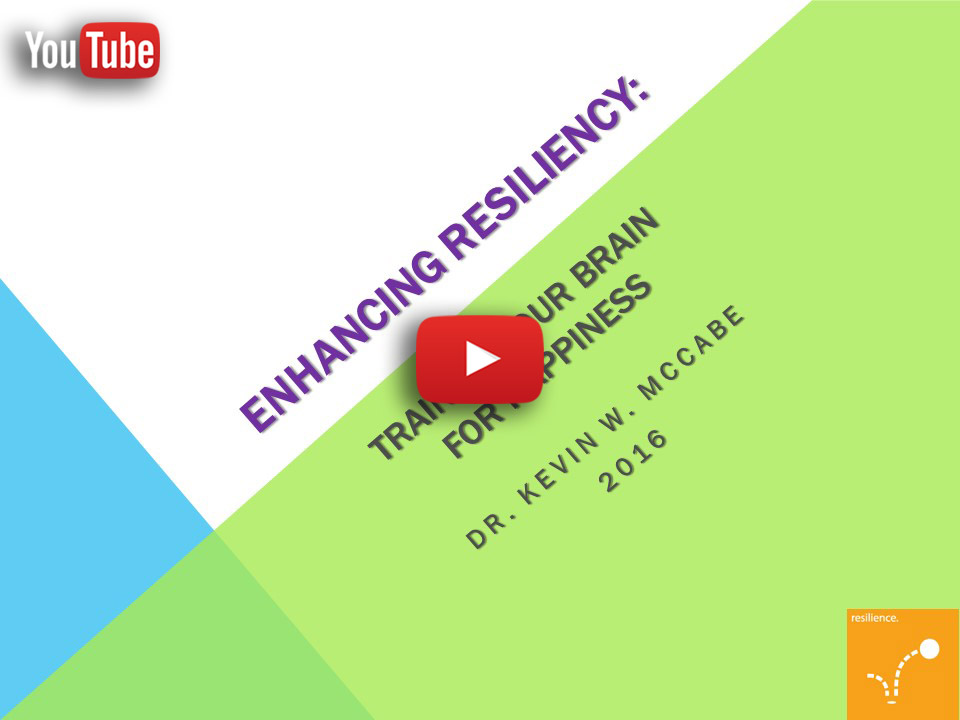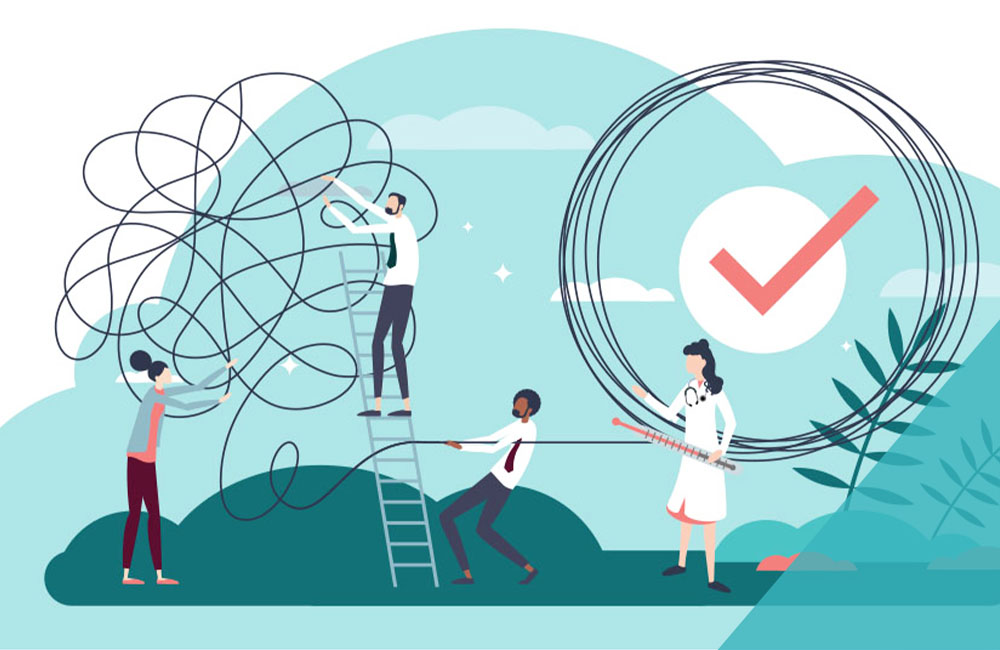
The Secret to Happiness in Less Than Five Minutes a Day
“We can train ourselves to be happier,” said Dr. Kevin McCabe, director of occupational and preventative medicine at SC Johnson. External Link. Opens in new window.. “Our brains are hard-wired for safety and survival. But as humans, we are also hard-wired to be resilient.”
Dr. McCabe spoke on Jan. 24, at the Alliance Learning Circle event: Does Happy = Healthy? Transitioning from a Wellness Plan to a Well-Being Program.
Well-being is comprised of more than just physical wellness. A resilient brain can better handle workplace stress and encourage workplace success. Happiness is a precursor to success. When you are happy, you’ll be more successful.
“[The United States,] the most powerful and wealthiest nation in the world, is 17th on the world happiness scale,” said Dr. McCabe. “That’s not a very positive thing in life and we’ve got to do something different.”
There are many definitions of happiness. Dr. McCabe defined happiness as: A deep and sustained fulfillment from living a good, virtuous and meaningful life. “This is a deeper and more holistic look at our lives, said Dr. McCabe.
Why Should You Practice or Pursue Happiness?
“When you are happy, your immune system is happy!” said Dr. McCabe, “Happier people at work, miss less time. They have less respiratory infections during the winter months.”
When you are happy, you …
- Have a lower risk of heart attack.
- Are more inclined to be physically active.
- Will be more creative.
- Will be more productive.
- Are the opposite of distressed, angry and sick.
“If you have the ‘angry’ disease, you want to get rid of it, because that’s a higher risk for heart problems than the combination of smoking and diabetes, said Dr. McCabe.
How Can You Create the Change within Yourself to Train Your Brain for Happiness?
“Research shows 50 percent of your happiness is based on our conscious choices,” said Dr. McCabe.
The mind pays attention to threats first. However, through new ways of thinking and repetition of those new ways, you can train your brain for happiness.
Wake Up with Gratitude
Dr. McCabe suggested to wake up with gratitude in the morning. With gratitude, wake up thinking about what’s good in your life, not what’s bad.
“Wake up and picture in your mind, five people or pets that are either in your life now or were in your life. And just picture them in a happy, beautiful setting. Say a silent ‘thank you’ for them having been in your life or are still in your life, today,” said Dr. McCabe.
Pay Attention to the Beauty in the World Around Us
Slow down. Take a look around you. Pay attention and notice the beauty in nature and the world around you.
“When we do this, it trains us to have a deeper attention and to be less mind-wandering,” said Dr. McCabe.
Notice the color of the leaves on the trees, the shape of the clouds, be aware of your surroundings.
Appreciate Differences in Your Family and Friends
No two people are exactly the same. Appreciate the diversity of opinions, likes and dislikes of those around you. How can we do this?
“Greet your loved ones like you would if you haven’t seen them for 30 days. Try not to improve anyone for the first five minutes. And be genuinely interested; say one good thing to them,” suggested Dr. McCabe.
Don’t Judge Others. Be Kind.
“This is [about] how we interact with strangers and people we don’t know,” said Dr. McCabe.
Don’t judge people. Instead, send a silent wish of kindness for them to be well.
Take a look at the world the way you would like the world to look at you or your kids.
Reframe Life’s Challenges Using the Five Principles of Happiness
The five principles of happiness are:
- Gratitude – Being thankful for the good things in your life can increase your happiness by 25 percent.
- Compassion – Be kind to others and be kind to yourself.
- Acceptance – Accept the things that you cannot change. Accept the negative things that really don’t matter and move on.
- Higher Meaning – Make your world a little bit better and happier than you found it.
- Forgiveness – Broaden your worldview to include imperfections. Forgive and forget.
Make the five principles a part of your daily life and they’ll become an integral part of your everyday way of thinking. Practice all five principles daily, but consider focusing on one each day.
When you use these new ways of thinking, you’ll create the change within yourself. That’s the secret to happiness.
[box]
Learn more about Happiness and Well-Being
- Look to the Community to Build a Results-Oriented Wellness Program
- The Wellness Payoff
- Well-Being in the Workplace, Is Now More Important Than Ever. External Link. Opens in new window.
- Manufacturing Executive Makes Business Case for Wellness Programs
[/box]








